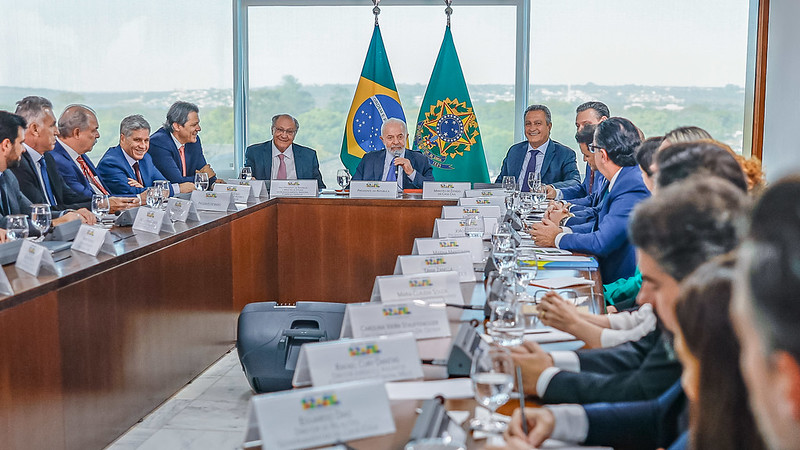Navigating Brazil’s Legislative Maze: Lula’s Battle with a Conservative Congress
As President Luiz Inácio Lula da Silva enters the latter half of his third term, his administration’s economic agenda has made notable strides. However, from the very beginning, Lula’s government has faced significant hurdles posed by a deeply conservative Congress. Dominated by powerful rural interests and factions loyal to former far-right President Jair Bolsonaro, this Congress has proven challenging for the administration to navigate.
A Challenging Legislative Landscape
Since assuming office, Lula has struggled to forge a stable coalition despite strategic endeavors to distribute cabinet positions among center and center-right parties. Significant tensions have surfaced, notably between the government and the congressional leadership. House Speaker Arthur Lira has been particularly vocal about his dissatisfaction with the government’s liaisons, leading to a strained relationship that has, at times, bordered on outright conflict.
Lira, re-elected as House Speaker at the start of 2023, is now entering the final months of his term. His dissatisfaction culminated in a declaration of war against the administration in April 2023, citing poor engagement from the government’s designated go-betweens. His limitations in seeking re-election in February 2025 signal a crucial juncture, where the success of his party’s hoped-for successor could significantly shape Lula’s legislative prospects.
Lula’s Strategy and Congressional Dynamics
At the heart of the friction lies the appointment of Alexandre Padilla as the minister responsible for liaising with Congress, a role traditionally pivotal in maintaining smooth government-legislative relations. However, Padilla’s inability to forge a productive relationship with Speaker Lira further complicates matters. Analysts like Beatriz Rey, a political scientist and researcher, emphasize that Lula’s reluctance to personally engage with Congress contrasts sharply with his hands-on approach during previous terms.
Historical Context and Lula’s Challenges
Lula’s earlier presidential terms were recognized for robust, albeit controversial, relationships with Congress, exemplified by the Mensalão scandal. However, today’s Congress is fundamentally different, both ideologically and in its institutional power, leading to new challenges for the administration. The legislative body is stronger, with shifting dynamics that the Workers’ Party (PT) has yet to fully adapt to.
As Rey points out, Lula’s government has not effectively navigated the complexities of coalition management. There’s a perceived imbalance in the distribution of resources and power, heavily favoring the PT’s own ranks over coalition partners. This strategic misstep harks back to past criticisms where allied parties felt sidelined by the PT’s dominance within government victories, while shouldering the blame during setbacks.
The Road Ahead: Electoral and Legislative Stakes
Looking forward, the municipal elections in October 2024 are expected to serve as a barometer of political strength between the left and the extreme right. However, even more crucial is the House speakership election in February 2025, where potential candidates could significantly influence the administration’s legislative agenda. Political observers identify this race as critical, on par with the presidential election, for shaping Brazil’s political landscape and executive-legislative relations.
Strategic Adjustments and Future Outlook
The key question facing Lula and his administration is whether they can recalibrate their approach to forge a more effective working relationship with Congress. Calls within the PT for a cabinet reshuffle, favoring parties actively supporting the government’s agenda, may come too late. The underlying issue remains the government’s need to recognize the evolving legislative environment and adapt its strategies accordingly.
In an evolving political landscape, the Lula administration must navigate these complexities with adeptness and flexibility, balancing the immediate need to achieve legislative goals with the long-term imperative of fostering robust, cooperative relationships within a diversely powerful Congress.
